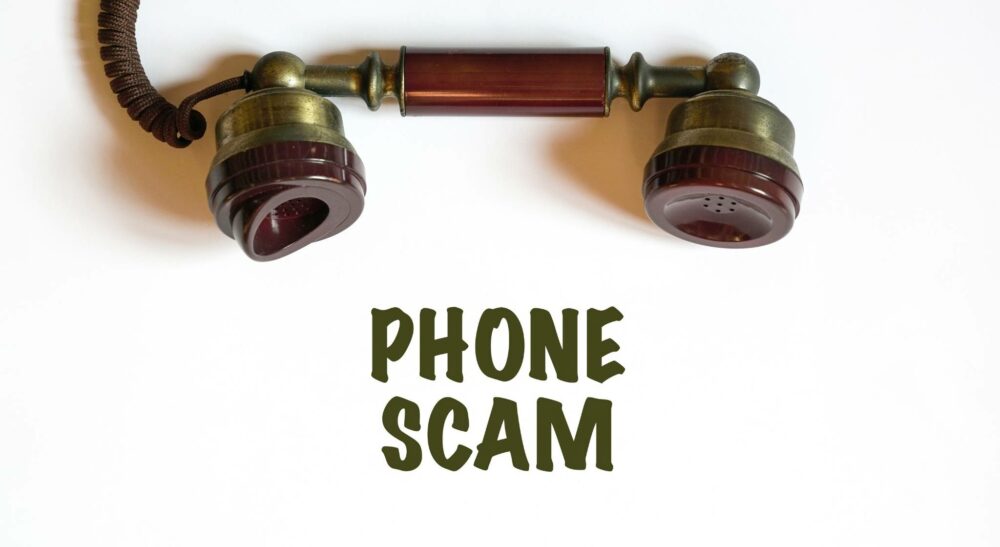9 Social Media Scams to Avoid
Teenagers have grown up with smartphones and computers.

Therefore, it is no surprise that they are technologically and Internet knowledgeable, assuring them online. Regarding social interaction, they also frequently exhibit less experience and greater levels of trust than most age groups. This mix makes young people more susceptible to con artists, particularly in the risky online environment. Keep reading the article to find in-depth details about social media scams to avoid
Latest News & Scam Alerts




The Latest 411 on Current Day Cell Phone Scam

Smishing: A Whole New Level of Scams & Frauds
Over £27million lost to scams involving crypto and forex investments in 2018/19
Securities and Exchange Commission
If you’re someone who is into Online Auctions, then you’re definitely at the right place. We can give you the best practices in identifying red flags as well as help you in recovering your stolen money from scammers!
Table of Contents
Clickjacking
An attempt to install malware or to “phish” someone—a phrase related to clickjacking—by persuading them to enter personal information on a false website—is when a fraudster targets someone to click a link.
Clickjacking is carried out by disseminating enticing content that deceives the user. The fraudster then tries to attack people after they return to the content’s original source.
It is crucial to make fraud protection a procedure that spans the entire customer lifecycle. Cybersecurity solutions will assist you in identifying and preventing fraudsters of all stripes, whether they result from leaking data, unauthorized access or payments, or human error.
Fake Friends or Followers

There is nothing more alluring than false followers. The size of their following is the primary criterion for any brand to choose a user to promote their brand. More involvement also helps users appear more popular or validates their material to the larger social media audience, which encourages the use of such services.
Fraudulent behaviors using phony followers, accounts, and interaction damage the platform’s reputation and project an untrue image. They can also substantially sway public discourse, spread misinformation, and have negative real-world repercussions
Identity Theft
The use of stolen or accessed personal information to commit fraud is known as identity fraud.
Identity theft may result in a criminal investigation, among other things, if someone is committing crimes using your name. It’s crucial to comprehend how ID fraud may impact you, so it’s better if you stay away from this social media scam.
Con artists can access your account and withdraw money, open new bank accounts in your name and obtain loans or credit lines, contract for phone service and other services, gain access to your government’s internet services, purchase expensive items in your name, and even steal your superannuation using your data.
Romance Scams
A romance scam commonly referred to as an online dating scam, is when someone is tricked into believing they are in a romantic relationship with someone they met online.
An online criminal who works with them assumes a phony identity to gain their victim’s trust before extorting or blackmailing them.
Interacting with their victims on various social media platforms is a practice of scammers who prey on personal relationships. The con artist gets the victim to remove his or her garments as they get closer before threatening them with the recordings.
Scammers will pose as a dating app to provide a fake text verification number. When the victim clicks on it, a form requesting personal data such as social security and credit card numbers will display. You should stay away from this social media scam.

Do you suspect that someone had scammed you?
If you have any suspicion of a scam or phishing attack, then you can rely on EZChargeback to help you with protection, mitigation, and fund recovery.
You will feel safe knowing that experts with years of experience will be guiding you!

Credit Repairs Scams
There is a strong chance that any advertisements or services that promise to boost or restore your credit are a scam.
Scams involving credit rehabilitation usually target people with financial difficulty and credit issues. These businesses deceitfully promise to delete negative information from consumers’ credit reports, even if the information is accurate, to get customers to buy their services. This is undoubtedly the type of social media fraud to avoid.
If a business requests payment in advance for a service, you should consider it fraud. Never forget that negative credit information on your credit record cannot be removed.
Lottery Scams
Everybody has occasionally daydreamed about winning the lottery.
Typically, the con artist will get in touch with potential victims and claim to have won the jackpot. The victims are then informed that in order to claim their prizes, they must pre-pay taxes, legal expenses, or registration fees. Fraudsters can get in touch with victims by phone, email, mail, and text message, but social media is where they mostly do it.
Don’t be naive enough to give out account numbers, PINs, credit card details, and other personal or financial information.
Job Offer Scams

You get an unexpected employment offer via social media, messaging apps, etc. Potential ’employers’ sometimes promise big remuneration with minimal effort or time commitment.
There is numerous kind of job scams. Employers are attempting to differentiate themselves in a job seeker’s market. However, use caution if a job posting makes great promises about making money soon or anything else. Don’t be naive to get your hopes up and consider this social media scam to avoid.
Phishing Attempts with Fake Links
The mass of phishing links are sent over email and are intended to trick the recipient into installing malware, divulging credit card information, giving up personal data (like a Social Security number), or offering account or login details for a specific website. Stay away
It can be difficult to tell if you’ve opened a phishing link, what occurs next, and what to do to solve the situation because these emails are frequently expertly created to seem just like an official notification from a site the victim is familiar with and comfortable with.
Fake Charities
You want your donation to matter when you choose to support a cause that matters to you.
Allow no one to pressure you into donating. Scammers engage in that behavior. Some con artists adopt names that closely resemble those of legitimate charities. Some con artists will thank you for a donation you didn’t make to convince you to send them money. Be careful not to fall into the scammer’s trap and stay away from this social media scam.
How to Avoid Social Media Scams

We have listed below some easiest ways to avoid social media scams.
- Install and activate antivirus and malware protection software.
- Create different passwords for each website you visit.
- Links from people you don’t know, or trust shouldn’t be clicked.
- A significant measure of suspicion should always be exercised when responding to unsolicited messages or offers.
- Before visiting a website, look up its reviews online.
- Never divulge personal information unless you know the recipient can be trusted.
- Learn how to use and what a reverse lookup search engine is.
If you believe you have fallen victim to social media fraud, don’t be afraid to alert a responsible adult or the police.
What’s Next?
We’ve already alerted you about social media scams to avoid.
If you still end up falling victim to any sort of social media scam, Ez Chargeback has got your back. Our comforting staff is highly skilled and available 24/7 to assist the victims. We have been successful in recovering millions of dollars. We won’t let the fraudsters get away and will not let you down.
Bottom Line
Children are particularly vulnerable to fraud because of their naivety and immaturity. It can be challenging for parents to identify when a child has fallen victim to fraud because so many scams today are online. You may take steps to safeguard your family and children so that neither of you gets victimized.
For more relevant information, visit Ez Chargeback and find thousands that can help you invest your money in the right place. If you have been scammed in an online auction scam, contact us, and we will help you get your money back.
do you need help?
A lot of those who contact us have questions and concerns about their personal and business data being compromised. We aim to arm you with the legal and technical know-how in the fight against scams. Also, we will be able to refer you to top scam recovery agencies.
Please fill up the form. Rest assured that our support team will get in touch with you





